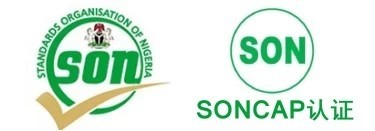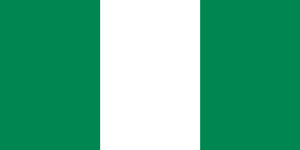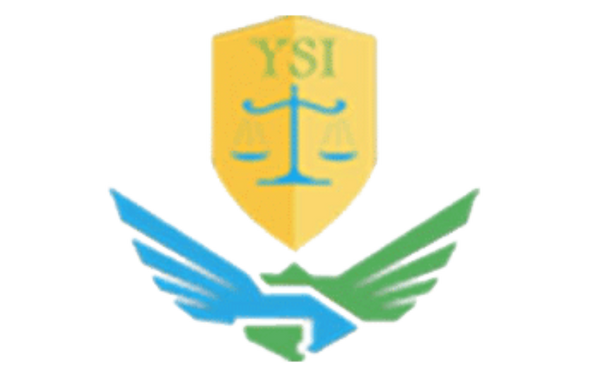
Nigeria SONCAP certification
The Standard Organization of Nigeria (SON) is a government agency in Nigeria responsible for formulating and enforcing quality standards for imported goods and domestically manufactured products. In order to ensure that regulated products comply with the country's technical standards or other international standards that have been approved for implementation, and to protect Nigerian consumers from unsafe or substandard products, the Nigerian National Bureau of Standards has decided to implement the mandatory pre-shipment conformity assessment procedure SONCAP for regulated products exported to the country.
Nigeria Customs Clearance Certification According to the regulations of the Nigerian National Bureau of Standards, regulated products exported to Nigeria must be certified by Nigeria SONCAP before shipment.
SONCAP certificate is a legally required document for regulated products to go through customs clearance procedures at Nigerian Customs. Lack of SONCAP certificate will cause customs clearance delays for regulated products or refusal to enter the Nigerian domestic market. It is particularly important to note that SONCAP applies to regulated products, and other import procedures stipulated by the Nigerian government are still valid. 

Nigeria customs clearance information:
a. The complete company name and address of the consignor and consignee must be provided and displayed on the bill of lading. If the consignee is To Order, the notify party must comply with the above requirements
b. Cargo Tracking Note Number (CTN NO.) Nigeria cargo tracking note or Nigeria cargo import list
c. Original Bill of Lading
d. Packing List
e. CCVO Certificate
All parcels imported into Nigeria must be accompanied by a detailed commercial invoice. The invoice must include: HS code, quantity, unit price, total price of each commodity. The currency of the declared value must be US dollars or euros. The local customs will not accept the replacement or modification of the commercial invoice and the declared value on the invoice during the customs clearance process. Please declare all the contents of the shipment truthfully and accurately before sending the shipment.
f. Risk Assessment Report (RAR) Risk Report (Tax Payment Certificate)
g. Inspection certificate
h. Certificate of Origin
i. Live birds, beasts and animals must be accompanied by a health quarantine certificate
j. For food, cosmetics and pharmaceutical products, a joint certificate of manufacture and free sale is required
k. For food, basic food materials and feed, one radioactivity certificate and two ingredient analysis certificates are required
l. Alcoholic beverages should be accompanied by a certificate of brewing year
m. The original copies of SONCAP certification (including PC certificate and SC certificate)/CCVO certification and other documents are required. At the same time, SONCAP certification should be done in advance, usually before shipment.
CCVO certificate for customs clearance of export to Nigeria
The CCVO certificate is a mandatory requirement for China to export goods to Nigeria. It is a certificate that is reviewed by a customs brokerage company approved by the Chinese Ministry of Commerce before the goods are shipped and issued after approval by the Nigerian Customs. It is an important document for exporters to clear goods in Nigeria.
If the exporter fails to obtain the CCVO certificate or fails to pass the customs review, the goods will be detained or returned, resulting in delivery delays, and the exporter may also face fines and other legal liabilities.
Process
The following steps are required to apply for a CCVO certificate:
1. Prepare the relevant export documents according to the requirements of Nigeria Customs, including contracts, invoices, packing lists, etc. At the same time, you need to download and fill in the CCVO certificate application form on the official website of the Ministry of Commerce of China.
2. Customs brokerage agency - entrust a professional customs brokerage agency to apply for the CCVO certificate. The customs brokerage agency will fill in the application form based on the information you provide and help you prepare relevant documents.
3. Review and approval - The customs broker submits your application form and related documents to the Nigerian Customs. The Customs will review and approve your application and issue a CCVO certificate.
4. Collect the certificate - Once the CCVO certificate is approved, the customs broker will assist you in collecting the certificate.
Required Information
The information required to apply for CCVO certificate is as follows:
1. Invoice-including goods details, quantity, unit price, etc.
2. Contract - describes in detail the terms and conditions of the contract between the buyer and the seller,
3. Packing list - a detailed description of the packaging of the goods,
4. CCVO certificate application form, download and fill in on the official website of the Ministry of Commerce of China.
Nigeria SONCAP customs clearance certification
Exports to Nigeria must be certified by SONCAP (similar to product certificates of conformity, the main content is that the data of the tested products is only applicable to the Nigerian market). If goods without SONCAP certificates are temporarily arranged for customs clearance, the consignee needs to apply for FORM M and PAAR before customs clearance at the Nigerian port or border.
Nigeria SONCAO customs clearance certification requires applying for a PC certificate first. After the PC certificate is completed, it will be sent to foreign customers to apply for FORM M at the local bank, and finally the SONCAP certificate will be issued.
Nigeria SONCAP certification process:
1. Provide PC certificate, packing list, invoice, FORM-M, bill of lading, application form.
2. The packing list must include the information and contact information of the importer and exporter, the customs code, product name, brand, model, number of pieces, number of boxes, gross weight, net weight, volume, and the exporter's seal and signature.
3. The invoice must include the information and contact details of the importer and exporter, the customs code, product name, brand, model, number of pieces, number of boxes, unit price, total price, and the exporter's seal and signature.
4. If the PC certificate cannot be provided, please provide sample testing or provide product pictures and product parameters to apply for the PC certificate.
5. Submit the information to the issuing agency for review, make an appointment for inspection, prepare product labels and affix them accordingly.
6. After the inspection is passed, submit the final packing list and invoice for the draft certificate/PC2. PC3 can directly apply for exemption from inspection and draft.
7. Confirm the draft certificate and arrange for the issuance of the original copy.
Note: There are three different fees for Nigeria SONCAP certification:
1. PC1: valid for 6 months, valid once, suitable for products that are only released once within half a year;
2. PC2: Valid for one year, unlimited number of times, suitable for products shipped multiple times within a year;
3. PC3: Valid for one year, unlimited number of times, application requires factory inspection, suitable for products shipped multiple times within a year;
4. It is worth noting that sensitive products can only be processed by PC1 and PC3, while PC2 can only be processed by non-sensitive products.
What are the options for customs clearance at Nigeria Customs?
When goods arrive at Nigerian ports, the Nigerian Customs provides a variety of customs clearance options, including ordinary, expedited and electronic customs clearance.
- Ordinary customs clearance: You need to submit complete customs clearance documents and pay the corresponding customs duties and value-added tax. This method is mainly suitable for high-value goods, and the amount of taxes and fees is relatively large.
- Fast customs clearance: It is applicable to emergency materials, such as medical supplies and humanitarian relief materials. Although the customs clearance process can be accelerated, corresponding supporting documents must be provided.
-Electronic customs clearance: It is completed through an electronic platform and is suitable for small-value goods and items with lower risks. Using the electronic platform, you can submit customs clearance documents and pay taxes conveniently.
The specific customs clearance method to be chosen requires comprehensive consideration of factors such as the type, value and quantity of the goods, and consultation with local customs or professionals.
FAQ
Q1. Is a SONCAP certificate required for customs clearance certification in Nigeria?
Except for food, medicine, medical supplies (except medical equipment and machinery), chemicals used as raw materials, military supplies and equipment, prohibited goods stipulated by the Nigerian federal government and second-hand products (except second-hand cars), all other products are included in the SONCAP control catalogue, which means you need to find inspection and certification companies such asTESTCOO , CCIC, SGS, etc. to make SONCAP certificates, which are mandatory documents required by the Nigerian Customs, otherwise they will not be cleared.
Q2. What are the mandatory catalogues for SONCAP certification?
Except for the following products, all are included in the control catalogue:
1) Food;
2) Medicines;
3) Medical products other than medical equipment and machinery;
4) As chemical raw materials for production;
5) Military products;
6) Products that are prohibited from import by the Nigerian government;
7) Second-hand products other than automobiles.
Q3. What is Nigeria PC Certificate?
Nigeria PC certificate is a product certificate, which is generally valid for one year. There are currently three forms:
Route A, for occasional shipments in a year: After the exporter's goods are produced, the inspector will inspect the goods, and then take samples from the bulk for testing. If the test is qualified, a PC1 certificate will be issued. Before shipment, the goods will be supervised and sealed, and an SC certificate will be issued if the test is qualified.
Route B, for multiple shipments in a year: first, the exporter applies for PC2. The process of applying for PC2 is as follows: application form; product information; valid test report; factory system audit; PC2 is valid for one year. After the goods are produced, the factory applies for SC loading supervision. After the information is complete, the goods are inspected, sampled and loaded at a rate of no less than 40%. SC certificate is issued if they are qualified.
Route C, for frequent shipments in a year. First, the factory applies for PC3, and the application conditions are as follows: the factory is audited and qualified; valid test report; the validity period after obtaining the license is one year. After the factory produces the goods, the SC application process is as follows: after the information is complete, a certain ratio of inspection and loading supervision will be carried out on the goods, no less than twice a year.
Share this product

Nigeria SONCAP certification
The Standard Organization of Nigeria (SON) is a government agency in Nigeria responsible for formulating and enforcing quality standards for imported goods and domestically manufactured products. It ensures that regulated products comply with the country's approved technical standards or other international standards, and protects Nigerian consumers from unsafe or substandard products.
